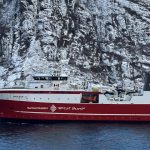The delegation comprising local and foreign experts in aquaculture is in the flood affected regions. They are to inspect the damage caused by the floods. The fish farms were instituted by the Ministry of Fisheries and Marine Resources to reduce poverty and empower residents in settlements along rivers. Minister of Fisheries and Marine Resources, Dr Abraham Iyambo, who is accompanied by aquaculture experts from China, Cuba, Canada, the Commonwealth and the ministry’s staff, told New Era the aim of the five-day tour to the regions was to assess the state in which fish farms are in light of devastating floods that hit the two regions.
Earlier experts have visited the Kalimbeza and Likungamelo fish farms in the Caprivi Region. It is reported that the floods affected most aquaculture projects in the two regions. Still the minister was optimistic that the harvest this year would still be impressive. Mpungu fish farm in the Kavango Region harvested fish in May and according to the minister, he was informed this has been the best harvest in previous years.
Karovo fish farm also expects to have a good harvest scheduled for October this year. Meanwhile, Iyambo informed that the Kalimbeza fish farm was severely affected, as the centre was completely submerged. However, enough fish survived as those in charge of the centre improvised and strengthened the “walls” to the ponds by putting around plastic and iron materials.
The main aim of Kamutjonga Inland Fisheries Institute (KIFI) project is “to be a regional centre providing leadership in aquaculture research, fisheries management and capacity buildings” and its primary objectives are to research, fish and fingerling production and training and to serve as a data or information centre.
It is told that the government has made strides in the development of freshwater aquaculture throughout the country by coming up with several projects and institutions to boost fresh water fish production.








